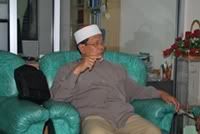Comments Come Before Central Bank Meeting on Tumbling LiraSource: The Wall Street Journal
By Joe Parkinson, Updated Jan. 28, 2014 1:20 p.m. ET
Turkey's Prime Minister Recep Tayyip Erdogan waves at members of the parliament from his ruling AK Party during a meeting at the Turkish parliament in Ankara on Tuesday. Agence France-Presse/Getty Images
ISTANBUL—Turkish Prime Minister Recep Tayyip Erdogan on Tuesday said that foreign media and business lobby groups were stoking political and economic turmoil in Turkey, as the nation's central bank prepared for a meeting to shore up the tumbling lira.
In a speech to lawmakers, Mr. Erdogan said foreign media organizations, including The Wall Street Journal and British Broadcasting Corp., as well as some of Turkey's biggest businesses, were seeking to exploit the country's difficulties.
"My dear brothers these organizations have always stolen the national will in this country. They have pocketed the resource and energy of this country," Mr. Erdogan said. "Is it only BBC? Also The Wall Street Journal. Who are the bosses of these newspapers? Who own these newspapers?" he added.
The BBC didn't immediately respond to a call for comment.
"Our coverage of Turkey has been without bias, favor or agenda. We will continue to cover Turkey with the same fair and accurate focus that is the hallmark of all of our journalism around the world," said Gerard Baker, editor in chief of Dow Jones and managing editor of The Wall Street Journal. News Corp. NWSA -0.18% owns Dow Jones & Co., publisher of The Wall Street Journal.
Both news organizations have in recent weeks published interviews with a reclusive but influential Turkish imam whose supporters have become embroiled in a power struggle with the prime minister after a decadelong political alliance.
The Wall Street Journal published an interview with Fethullah Gulen on Jan. 20. The BBC broadcast an interview with the cleric on Jan. 27.
Mr. Erdogan has in recent weeks escalated criticism of foreign media coverage of Turkey, reiterating assertions that an "interest rate lobby"—alleged to include some business organizations, currency traders and foreign media—is seeking to profit by suppressing Turkey's economic growth and pushing up interest rates. The premier has previously singled out news organizations for criticism, including the BBC, The Wall Street Journal, The Economist magazine and Reuters news agency.
Some of Mr. Erdogan's critics say he is indulging in conspiracy theories in a bid to depict his government as being under siege from foreign enemies.
"Erdogan has used the strategy of blaming outsiders in the past but this has got much worse in recent times in terms of the amount of targets and the intensity. I think this is set to continue at the very least until the local elections and most likely longer," said Wolfango Piccoli, managing director of Teneo Intelligence, a political risk consultancy.
The prime minister—who is comfortably ahead in opinion polls ahead of local elections in March and presidential elections, in which he is expected to run, in August—is facing one of the greatest threats to his leadership after a sprawling corruption probe snared many of his allies, forcing a cabinet reshuffle. The political crisis has been aggravated by a darkening economic outlook for emerging markets, sending the lira tumbling almost 20% since the corruption probe became public on Dec. 17.
Turkey's central bank governor has given a strong signal that policy makers would significantly tighten monetary policy, including a hike in interest rates, to stop the plunge in the lira. The banks is holding an extraordinary policy meeting Tuesday evening.
Mr. Erdogan said Tuesday he opposes any interest rate increase, as his government is seeking to spur economic growth. "But I don't have any authorization to intervene with the central bank. It is not under my authorization, and responsibility belongs to them," Mr. Erdogan said.
In earlier remarks, Mr. Erdogan didn't directly address the extraordinary meeting, or the prospect of a tighter policy, but focused on the economic advances of the past decade.
"Turkey's economy has obtained a solid foundation in the last 11 years. It hasn't been driven away with domestic and outside sabotages … . Capital inflows will keep coming to Turkey," Mr. Erdogan said earlier.
Source: The Wall Street Journal





























Tiada ulasan:
Catat Ulasan